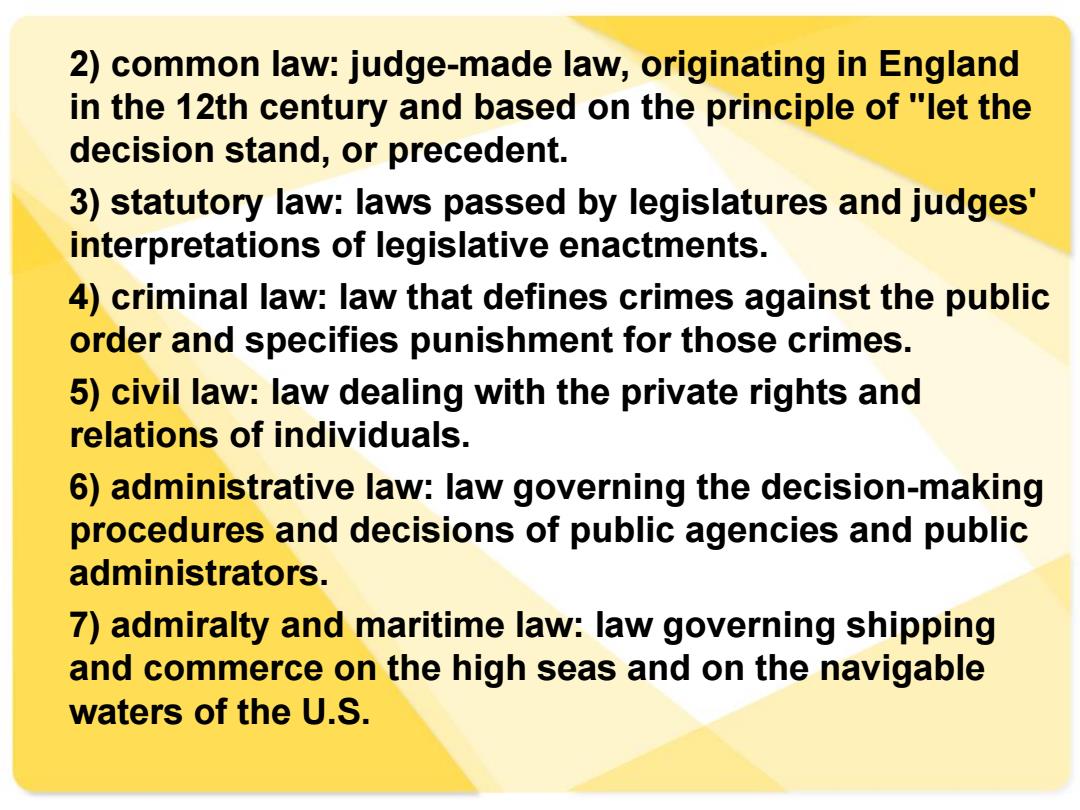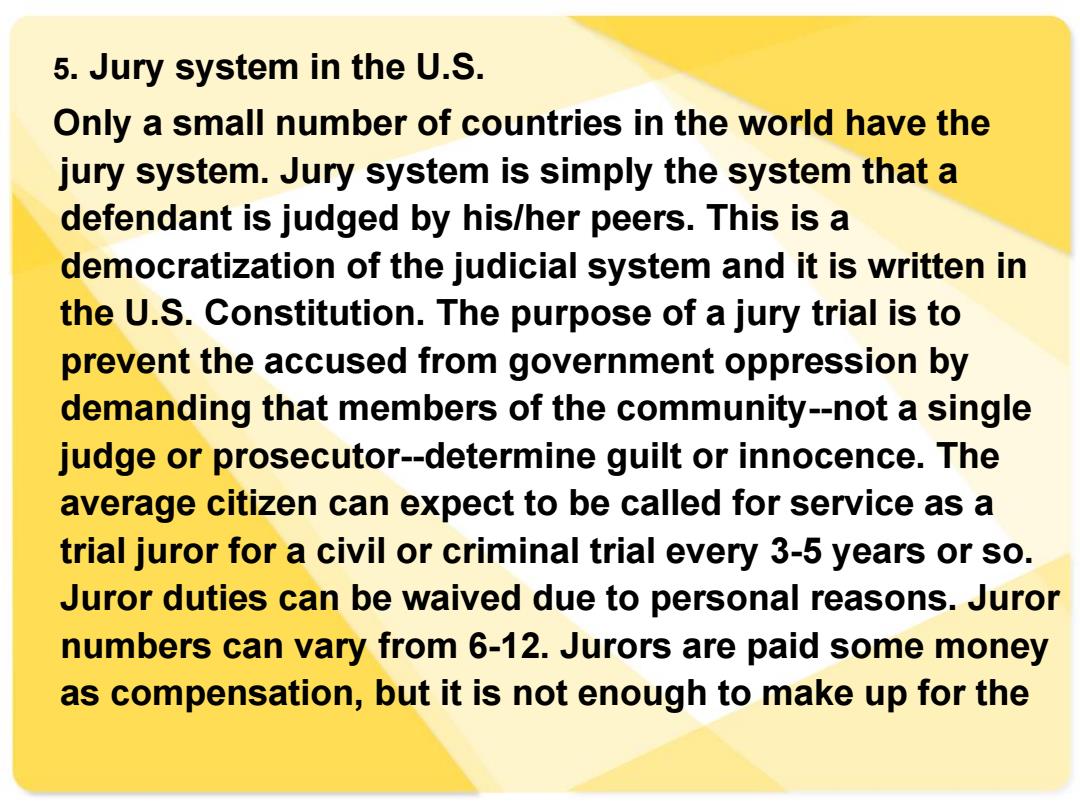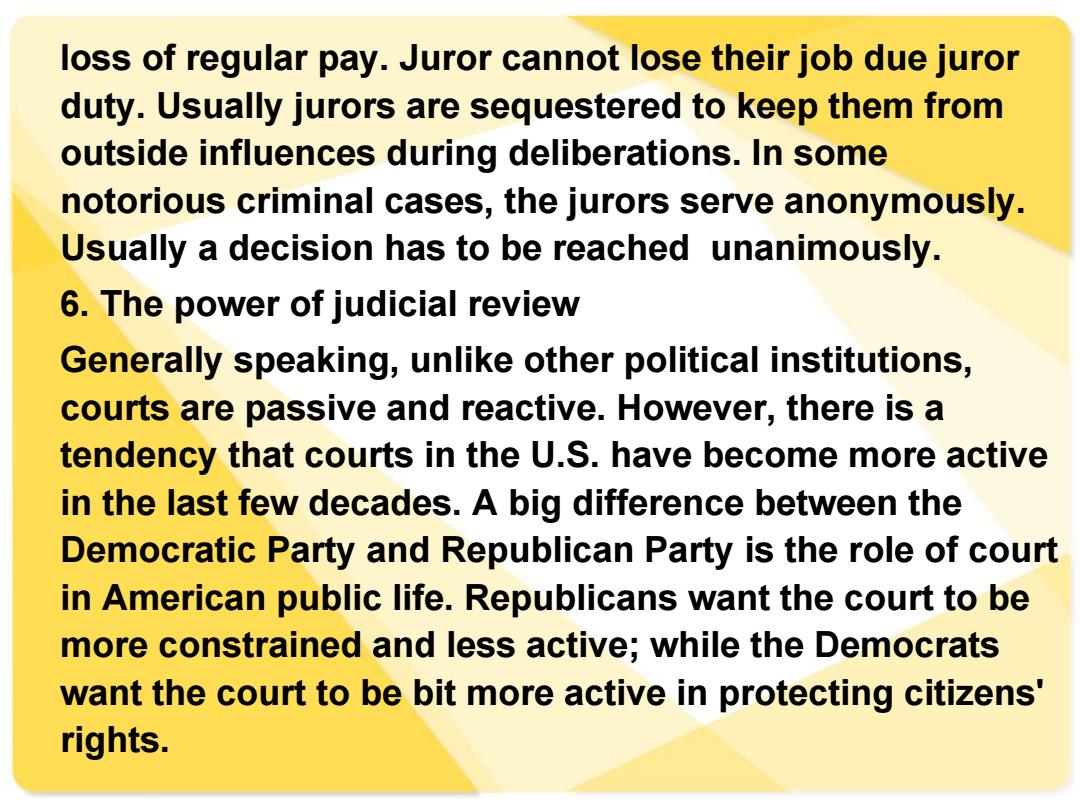
2)common law:judge-made law,originating in England in the 12th century and based on the principle of "let the decision stand,or precedent. 3)statutory law:laws passed by legislatures and judges' interpretations of legislative enactments. 4)criminal law:law that defines crimes against the public order and specifies punishment for those crimes. 5)civil law:law dealing with the private rights and relations of individuals. 6)administrative law:law governing the decision-making procedures and decisions of public agencies and public administrators. 7)admiralty and maritime law:law governing shipping and commerce on the high seas and on the navigable waters of the U.S
2) common law: judge-made law, originating in England in the 12th century and based on the principle of "let the decision stand, or precedent. 3) statutory law: laws passed by legislatures and judges' interpretations of legislative enactments. 4) criminal law: law that defines crimes against the public order and specifies punishment for those crimes. 5) civil law: law dealing with the private rights and relations of individuals. 6) administrative law: law governing the decision-making procedures and decisions of public agencies and public administrators. 7) admiralty and maritime law: law governing shipping and commerce on the high seas and on the navigable waters of the U.S

5.Jury system in the U.S. Only a small number of countries in the world have the jury system.Jury system is simply the system that a defendant is judged by his/her peers.This is a democratization of the judicial system and it is written in the U.S.Constitution.The purpose of a jury trial is to prevent the accused from government oppression by demanding that members of the community--not a single judge or prosecutor--determine guilt or innocence.The average citizen can expect to be called for service as a trial juror for a civil or criminal trial every 3-5 years or so. Juror duties can be waived due to personal reasons.Juror numbers can vary from 6-12.Jurors are paid some money as compensation,but it is not enough to make up for the
5. Jury system in the U.S. Only a small number of countries in the world have the jury system. Jury system is simply the system that a defendant is judged by his/her peers. This is a democratization of the judicial system and it is written in the U.S. Constitution. The purpose of a jury trial is to prevent the accused from government oppression by demanding that members of the community--not a single judge or prosecutor--determine guilt or innocence. The average citizen can expect to be called for service as a trial juror for a civil or criminal trial every 3-5 years or so. Juror duties can be waived due to personal reasons. Juror numbers can vary from 6-12. Jurors are paid some money as compensation, but it is not enough to make up for the

loss of regular pay.Juror cannot lose their job due juror duty.Usually jurors are sequestered to keep them from outside influences during deliberations.In some notorious criminal cases,the jurors serve anonymously. Usually a decision has to be reached unanimously. 6.The power of judicial review Generally speaking,unlike other political institutions, courts are passive and reactive.However,there is a tendency that courts in the U.S.have become more active in the last few decades.A big difference between the Democratic Party and Republican Party is the role of court in American public life.Republicans want the court to be more constrained and less active;while the Democrats want the court to be bit more active in protecting citizens' rights
loss of regular pay. Juror cannot lose their job due juror duty. Usually jurors are sequestered to keep them from outside influences during deliberations. In some notorious criminal cases, the jurors serve anonymously. Usually a decision has to be reached unanimously. 6. The power of judicial review Generally speaking, unlike other political institutions, courts are passive and reactive. However, there is a tendency that courts in the U.S. have become more active in the last few decades. A big difference between the Democratic Party and Republican Party is the role of court in American public life. Republicans want the court to be more constrained and less active; while the Democrats want the court to be bit more active in protecting citizens' rights